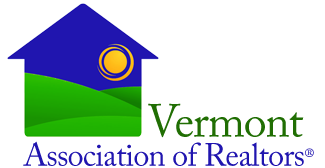Real Progress Made on Housing, Workforce
in '22 Legislative Session
The Legislature wrapped up the 2022 session on Thursday May 12th concluding the second year of the biennium.
Both the legislative and executive branches are acutely aware of and focused on Vermont’s housing crisis. Early in the session, VAR provided Governor Scott with key housing data that he included during his budget address. This helped legislators understand the urgent need to fund and pass meaningful reforms to address housing needs in our state. As a result, real progress has been made on housing, workforce development and broadband.
Legislative Overview
Despite the complications of a Zoom and then hybrid legislative session, the result has provided some real wins for Realtors®, including:
- A housing bill that encourages development in downtowns, village centers and Neighborhood Development Areas (NDA) by exempting priority housing projects from Act 250 review.
- Elimination of the Rental Registry from S.210
- Governor’s veto of Act 250 reform with forest block and Natural Resources Board changes
- Funding of $94M for Broadband
- Funding for Career Technical Centers for building trade education
- Started the process to convert towns to digital land records
- Defeated the Just Cause ordinance for Burlington
- Defeated the surcharge on property transfers over $1M
S.201: Rental Housing Health & Safety
This bill moves primary enforcement of the rental health code from local volunteers to the Department of Fire Safety. This bill also includes an allocation of $20 million for the Vermont Rental Housing Improvement Program (VHIP), which provides grants to rehab non-code compliant rental units or create new Accessory Dwelling Units (ADU) and make them available to those exiting homelessness.
The Senate removed the rental registry from the bill to avoid another veto by the Governor and to help ensure funding for the VHIP program.
 S.226: Expanding Safe & Affordable Housing
S.226: Expanding Safe & Affordable Housing
This bill provides several incentives for housing. It establishes programming language for $1 million allocated last year for First-Generation Homebuyer down payment assistance and provides $4 million for Manufactured Home grants.
This bill allocates $15 million for “Missing Middle Homeownership” to provide a builder incentive to fill the gap between the cost of building a home and its appraised value. This funding will also provide a subsidy to purchasers to fill the gap between the appraised value and the buyer’s purchase limit.
Included in the bill is the Contractor Registry which is triggered by construction projects that exceed $10,000 in labor and materials. Contractors must also provide written contracts and carry liability insurance.
Next, the bill addresses unfair housing practices by defining “harassment” and prohibiting tax sales of delinquent property if the owner has applied for the Vermont Homeowner Assistance Program (VHAP). It creates a Land Access and Opportunity Board to assist historically marginalized communities by retaining wealth, financial and real estate advisors who are from these historically marginalized communities.
On the last day of the session, Sen. Sirotkin and Sen. Bray introduced an amendment that added Act 250 reform language from S.234. This amendment defines Neighborhood Planning Areas (precursor to NDA), adopts an Agency of Natural Resources Flood Hazard Area and River Corridor Rule, extends four-unit per acre zoning to all residential uses and requires a minimum two-year time frame for conditional use permits.
The bill also provides $650,000 for Municipal Bylaw Grants to help municipalities meet the bylaw requirements to establish a NDA and expands the size of priority housing projects in small towns. It allocates $150,000 to fund reviews of Designation Area Programs by an independent consultant.
VAR’s Government Affairs Committee identified home ownership as our leading priority, and we are satisfied that many of our proposals have been included in this diverse package.
 S.234: Changes to Act 250
S.234: Changes to Act 250
The Natural Resources Committees in both bodies worked to modify Act 250, Vermont’s 50-year old land planning legislation. In addition to the positive development language that ended up in S.226 the Housing Bill, it also included language limiting property owner rights in forest blocks and connective habitats that VAR opposed. The Natural Resources Committee in the House added language from H.492 that would have redesigned the Natural Resources Board and the appeal process. Both concepts were opposed by the Governor and, while the bill did pass, the Governor indicated in his press conference on Tuesday May 17th that he will certainly veto this bill. We are happy to report that the provisions that VAR supported were incorporated into the housing bill.
 S.11: An Act Relating to Robocalls
S.11: An Act Relating to Robocalls
This bill incorporates language from two other bills added to it, creating a 90-page bill on workforce development that allocates over $1 million in ARPA and General Fund money for a variety of projects. VAR’s original housing proposals identified Career Technical Centers as an opportunity to encourage building trade education. This bill provides funding for this and other programs such as the CTE Construction and Rehabilitation Experiential Learning Program.
It also includes language restricting robocalls.
H.512: An Act to Modernize Land Records
This bill has two components. First, it codifies language to allow for remote notarization of documents. In addition, it enables the Office of the Archivist to work to develop plans to allow municipalities to accept digital records and report back to the legislature on their progress.
Broadband Expansion
The state is allocating $94 million for broadband improvement through local Communication Union Districts (CUD). VAR encourages Realtors® to get involved in their local CUDs to help deliver high speed service to the last mile throughout the state.
Burlington Charter Change – Just Cause
One of VAR’s key missions this year was opposition to this proposed ordinance. VAR opposed this ordinance because it restricts property owner rights to use and rent their property as they see fit. VAR created an issues mobilization campaign with a grant from NAR to research and provide information to the voters of the City of Burlington
 Just Cause requires landlords to automatically renew a lease unless the tenant has violated a handful of “just cause” requirements. Further, it sets caps on rent increases that landlords would be allowed to charge when renewing a lease. VAR’s advocacy position was based on data from other cities (like San Francisco) that saw a decline in the availability and quality of rental properties after just cause and rent control were instituted.
Just Cause requires landlords to automatically renew a lease unless the tenant has violated a handful of “just cause” requirements. Further, it sets caps on rent increases that landlords would be allowed to charge when renewing a lease. VAR’s advocacy position was based on data from other cities (like San Francisco) that saw a decline in the availability and quality of rental properties after just cause and rent control were instituted.
While the House and Senate both passed this bill, the Governor vetoed the bill triggering a veto override vote in the House. On May 10th the House failed to override the Governor’s veto meaning that the Just Cause / Rent Control Charter Change does not pass and will not be instituted in the City of Burlington.
H.447: Transfer Tax
As you may recall, we issued two Calls to Action alerts last year to oppose this additional 0.5% increase in the Property Transfer Tax on the value of properties over $1 million. While we successfully lobbied Senate Finance to oppose this bill, they did take it up for continued discussion this year. Fortunately, the committee was distracted by the Vacant Property Report in the New York Times and Senator Pearson’s amendment to tax vacant homes. This concept was not fully developed, and the committee moved on to other business.
 2022 Election
2022 Election
The 2022 election in Vermont will be unprecedented due to the number of current legislators retiring. One third of the Senate and over 50% of House committee chairs will not seek reelection. At the Federal level one seat in the Senate and our lone Congressional seat are open in this election cycle. In addition, the Lieutenant Governor, Attorney General, Secretary of State and Treasurer are all retiring leaving these positions open.
2022 is a year for Realtors® to be active in our elections! We need to hear from members regarding candidates for all offices who support Realtor® issues.

